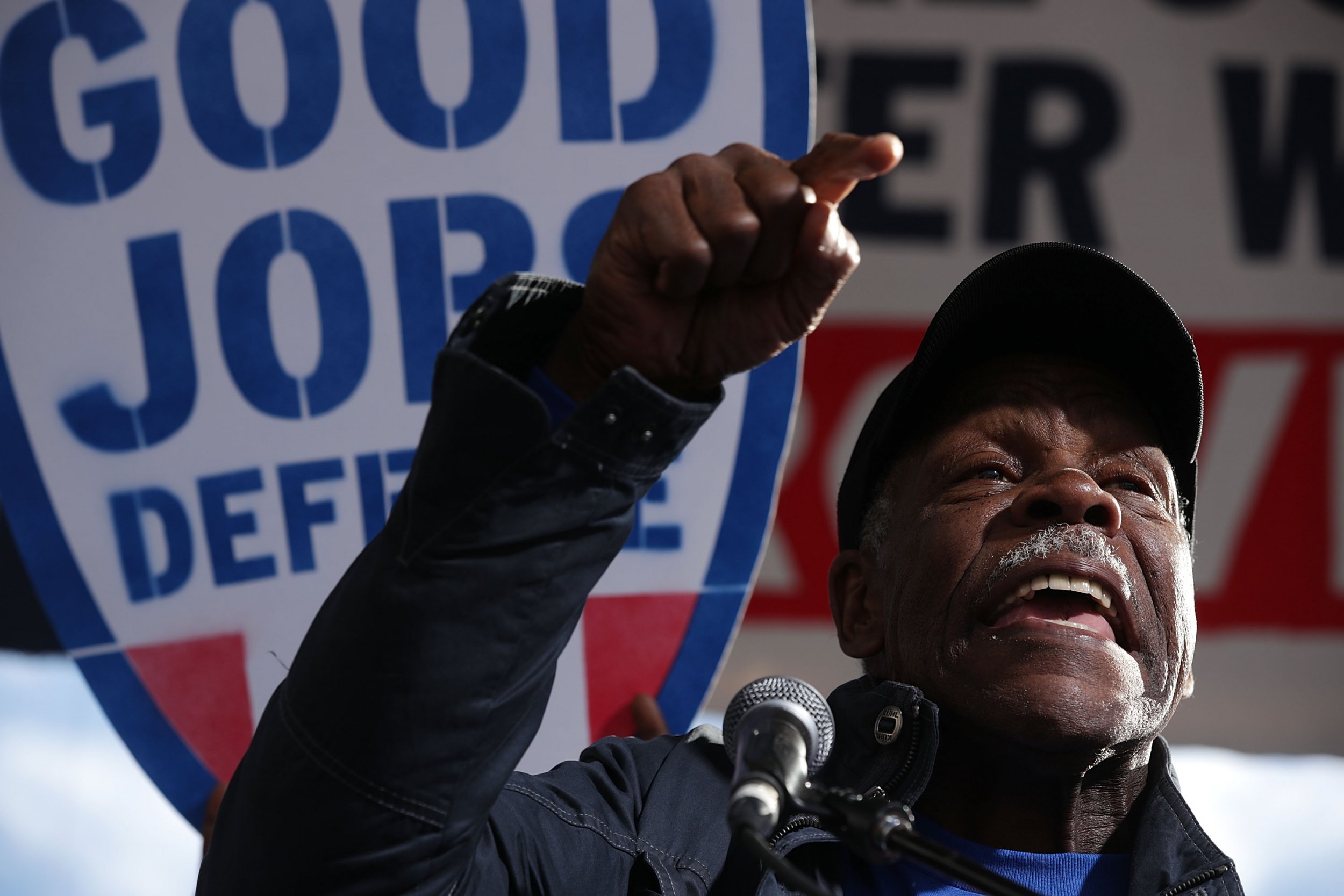
My lifetime of activism on civil rights and on humanitarian issues has taken me across the U.S. and around the world. But for the past four years, my time and energy as an activist has centered on one small town, which I believe is ground zero in America's civil rights struggle today: Canton, Mississippi.
Canton is home to a Nissan factory that employs more than 5,000 workers, roughly 80 percent of whom are African-American. The workers at this plant have been organizing to form a union, so that they can have a voice on the job and stick together to address issues like health and safety hazards and fair pay.
Nissan workers have formed unions at every plant the company operates around the world—in Japan, Britain, Australia, France, China, Mexico and even South Africa. But not in the American South.
The only places in the world where Nissan workers don't have a union are Tennessee and Mississippi. In Mississippi, Nissan workers who have spoken up and organized have faced an unrelenting pattern of harassment, intimidation and other civil rights abuses.
Related: Trump's election may be death blow for unions
That's why I, along with Senator Bernie Sanders and NAACP President Cornell Brooks, will be joining more than 1,000 workers, civil rights leaders and elected officials to march on Nissan's factory in Canton on Saturday, in what is expected to be the biggest protest to hit the state since the civil rights era. We're going to stand with Nissan workers to demand that the company respect their right to vote for a union free from fear and intimidation.
It's no accident that the U.S. South remains the one place where workers at Nissan do not have a union. Companies deliberately target states like Mississippi to take advantage of weak worker protections, which are a historical legacy of decades of discrimination against African Americans.
On a recent visit to the Canton assembly plant, I met with workers who told me first-hand how they've had their wages and hours cut arbitrarily, making it difficult for them to pay their bills and feed their families. I spoke with injured workers too afraid to take time off to get better in fear of losing their jobs.
I also spoke with workers who are regularly exposed to extreme heat, sharp edges and harsh chemicals yet have had their requests for proper safety equipment denied or ignored.
In recent years, federal authorities have started to crack down on Nissan's mistreatment of its workers. In late 2015, the National Labor Relations Board charged Nissan and a temporary worker agency with violating workers' rights in Mississippi. The board found that Nissan unlawfully threatened to close the plant if workers unionized; threatened employees with termination for union activity; and unlawfully interrogated employees.
The Occupational Safety and Health Administration has also issued multiple citations against Nissan for violations of federal safety and health laws. The most recent citation, issued in February, resulted after a plant technician's left hand was caught in a conveyor belt when the machine started unexpectedly.
Nissan's mistreatment of its workers is unconscionable, but it should also sound familiar to those who know history. The economic oppression of black workers began with slavery, continued in the Jim Crow era and now takes the form of suppression of union activity. Equal rights means the right to have a voice and a seat at the table with all the other stakeholders of Nissan.
I will stand behind Nissan workers until the company respects their rights, because their victory will not stop at the Mississippi state line. Just like the many civil rights struggles in the 1950s and 1960s that were centered in Mississippi and reverberated across the south, the struggle for economic justice and equal rights at Nissan in Mississippi will spread to Georgia, Tennessee, Alabama, the Carolinas and the whole country.
Their rising tide will lift all ships. That's what we're fighting for. And that's what we're going to win.
Danny Glover is an actor and a goodwill ambassador for the U.N. Development Program.
Uncommon Knowledge
Newsweek is committed to challenging conventional wisdom and finding connections in the search for common ground.
Newsweek is committed to challenging conventional wisdom and finding connections in the search for common ground.
About the writer
To read how Newsweek uses AI as a newsroom tool, Click here.








